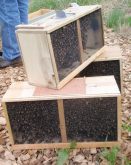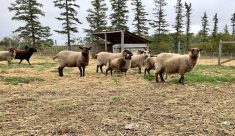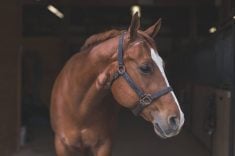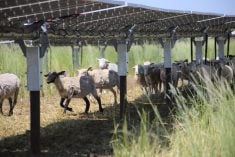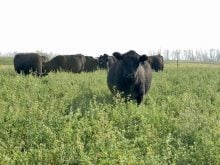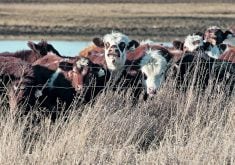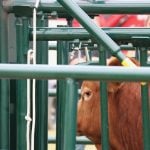The draft Code of Practice for the Care and Handling of Pigs would severely limit the use of gestation stalls and require producers to use group housing
Alberta Pork is calling on producers to speak out against a proposed animal care code that would severely limit the use of gestation stalls.
“Clearly everyone has figured out already that this thing is full of landmines — that is why we’re telling you that you need to respond in this public comment period,” Alberta Pork chair Frank Novak told producers at a recent meeting in Red Deer.
“We need to have very clear statements about what this means to your operation.”
The draft Code of Practice for the Care and Handling of Pigs says gestation stalls are not a best management practice, and can cause an increase in sow behaviours signalling stress, such as bar biting, sham chewing and excessive drinking. The yet-to-be finalized code stops short of an outright ban, but recommends use of gestation stalls be limited to no more than 35 days per cycle. It also states current stalls are not large enough to properly house a sow and would need modification. The new guidelines would come into effect in 2024.
Read Also
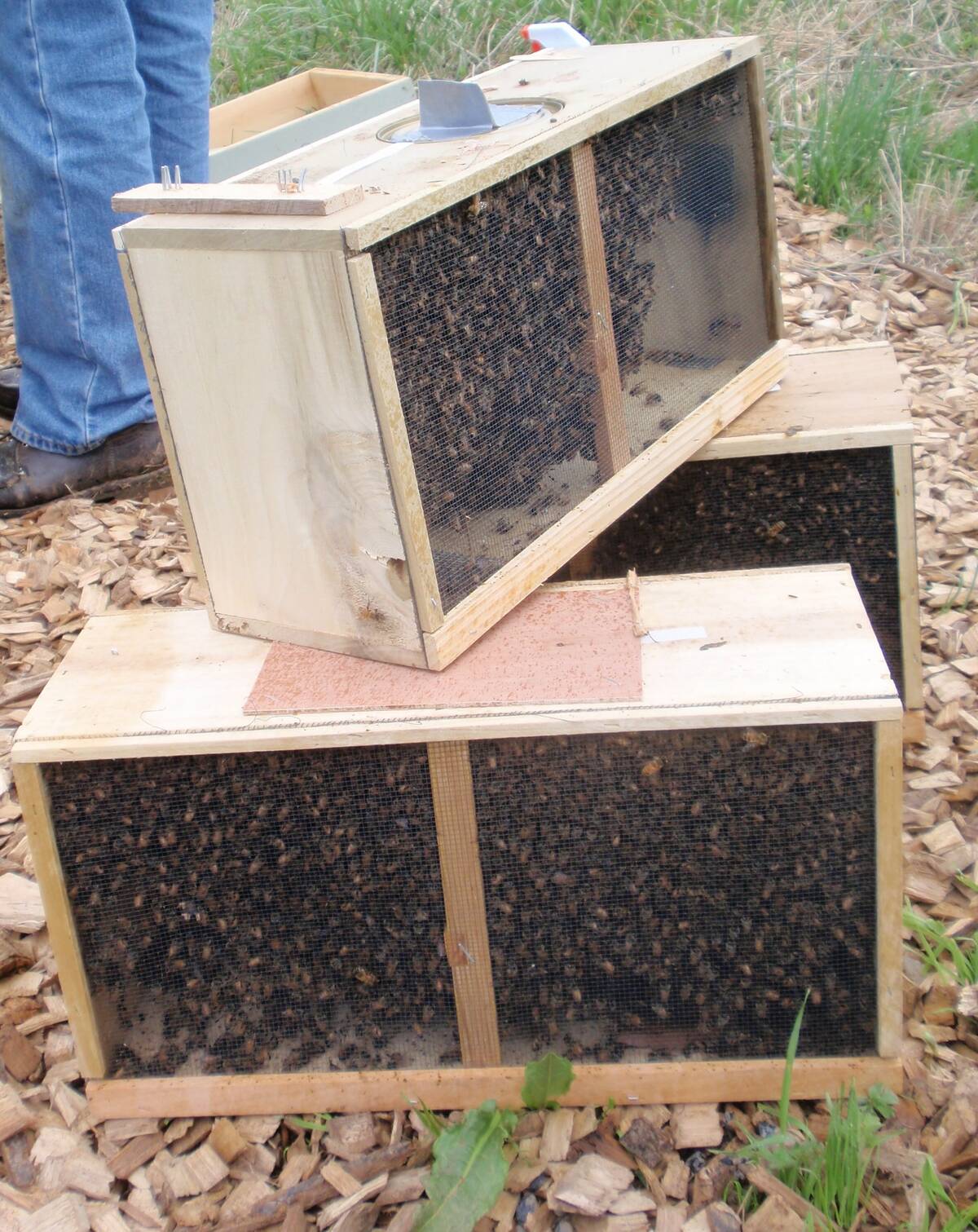
Canadian beekeepers call for regulatory accountability
Beekeepers say the Canadian Food Inspection Agency should restore U.S. packaged bee shipments, claiming the agency isn’t following evidence.
“We were told years ago that sows were better off in stalls, we all know that,” said Audrey Cameron, Alberta Pork’s animal care and quality assurance co-ordinator.
“Now we’re getting a different message.”
While some attendees at the meeting have already adopted group housing, others expressed concerns about how they were going to pay for the switch.
“We’re basically saying we can’t do this, and somebody’s going to have to pay the freight and we all know we have nothing left,” Novak said.
The Manitoba Pork Council, which is also urging its producers to voice their concerns, estimates the cost of converting to open housing would be $500 to $1,000 per sow. Although no law forces farmers to abide by the code, it is effectively mandatory for producers under the industry’s quality assurance program.
Other areas of concern in the draft code are the practices of castration, tail docking, and teeth clipping as they relate to pain management in animals, as well as euthanasia and enrichment requirements.
Now is the time for producers to make their concerns known, said Novak.
“This thing is not a done deal,” said Novak. “If all the producers rise up and say they will not sign this… this whole thing can die. This is your chance and you need to make sure that you’re loud and clear about this.”
The draft code is available at www.nfacc.ca/codes-of-practice/pigs and is open for public comment until Aug. 3.


